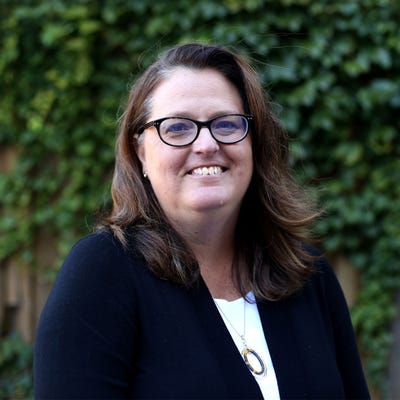The future of grocery will still need community grocers
The Local Checkout: New report projects 30 years into the future; and Anita Nuñez Cepollaro has joined NGA.
June 23, 2023


Grocery stores are like people—they come in all different shapes and sizes. And here at The Local Checkout, I’ll be taking a closer look through a wide lens of independent grocery stores. Because just like people—they all matter.
The future of grocery
This week, customer data science firm dunnhumby released a special report offering a look into the future of grocery. Dunnhumby's “Grocery 2053: A Data-Driven Gaze into The Future” projects 30 years into the future and finds that Amazon, H-E-B, Costco, Sam’s Club and Walmart are best positioned for 2053 when the U.S. grocery retail industry will be worth $1.9 trillion—more than double its size today. The report is packed with dense information that includes data, trends and other key findings,
But what I think is missing from the report that is equally as valuable as technological advancements is something that has been around for a very long time in the independent grocery space—a sense of community.
Independent grocery stores are the backbone of their communities. And yes, if we grab the crystal ball and gaze into the future, there will be technological advancements that we haven’t even thought about when it comes to grocery stores of the future, but I believe there will also be a need, just like there is today, for community across all generations.
It simply does not go away, because we are all wired for it. And independent retailers will always dominate this space in grocery because they are the one’s to fill that void now and in the future.
Market Basket, owned by the 105-year-old Demoulas Super Markets, which operates over 85 stores in four New England states, toppled the no-frills German discount grocery chain Aldi as top grocery retailer for inflationary times, according to dunnhumby’s special edition of its Retailer Preference Index (RPI) released last September.
In 2023 the Tewksbury, Massachusetts-based grocer has no self-checkouts—and is still on top of its game in the grocery space.
So perhaps the future shouldn’t rule out shoppers who are humming what Joni Mitchell quipped: “I like my freedom. I like to do my own grocery shopping.”
Sales and marketing veteran joins NGA
The National Grocer’s Association (NGA) announced this week that Anita Nuñez Cepollaro has joined NGA as vice president of business development for the trade association representing the independent supermarket industry.
Nuñez Cepollaro will help drive membership growth and NGA’s non-dues revenue programs, including event sponsorships and advertising programs. She joins NGA from the DC Chamber of Commerce, where she served as director of programs.
“Anita brings extensive experience in association management, including sales, fundraising and events, which will greatly enhance NGA’s level of service for its members,” said Jonathan Downey, NGA senior vice president of membership and industry relations.
Growing the cooperative economy
This month the National Co op Grocers—the business services co-op for 159 food co-ops nationwide—recently earned its recertification as a Certified B Corporation.
This marks 12 years for NCG as a B Corp. National Co op Grocers’ (NCG) ongoing commitment to improving social and environmental wellbeing has helped it earn its recertification as a Certified B Corporation (B Corp).
NCG first earned B Corp certification in 2011, and the cooperative’s commitment to B Corp goes well beyond the certification process. In 2022, NCG’s food co-ops sold more than $121 million of products from fellow B Corps.
“A key reason that communities organize and open food co-ops is because they want a more inclusive local food system and economy,” said C.E. Pugh, NCG CEO. “Case in point, the average NCG food co-op works with 281 local producers in its community, connecting metro and rural areas.”
Key Food owners provide relief
This week’s shout-out that deserves the hashtag #KindessCostsNothing goes to Eliza and Juan Diaz who own and operate more than a dozen Key Food supermarkets in Florida, and additional stores in New York, Connecticut and Massachusetts. They presented two checks on Monday for $30,000 to Food for the Poor (FFTP), an international relief and development organization.
“We’re so grateful to donors Eliza and Juan Diaz and their Key Food family for opening their hearts to those who are suffering in Turkey and the Ukraine and continue to need our help,” said Mark Khouri, EVP and COO of FFTP, in a statement.
Thanks for reading The Local Checkout. Got an indie grocery story news item you think I missed? Email [email protected].
About the Author
You May Also Like






